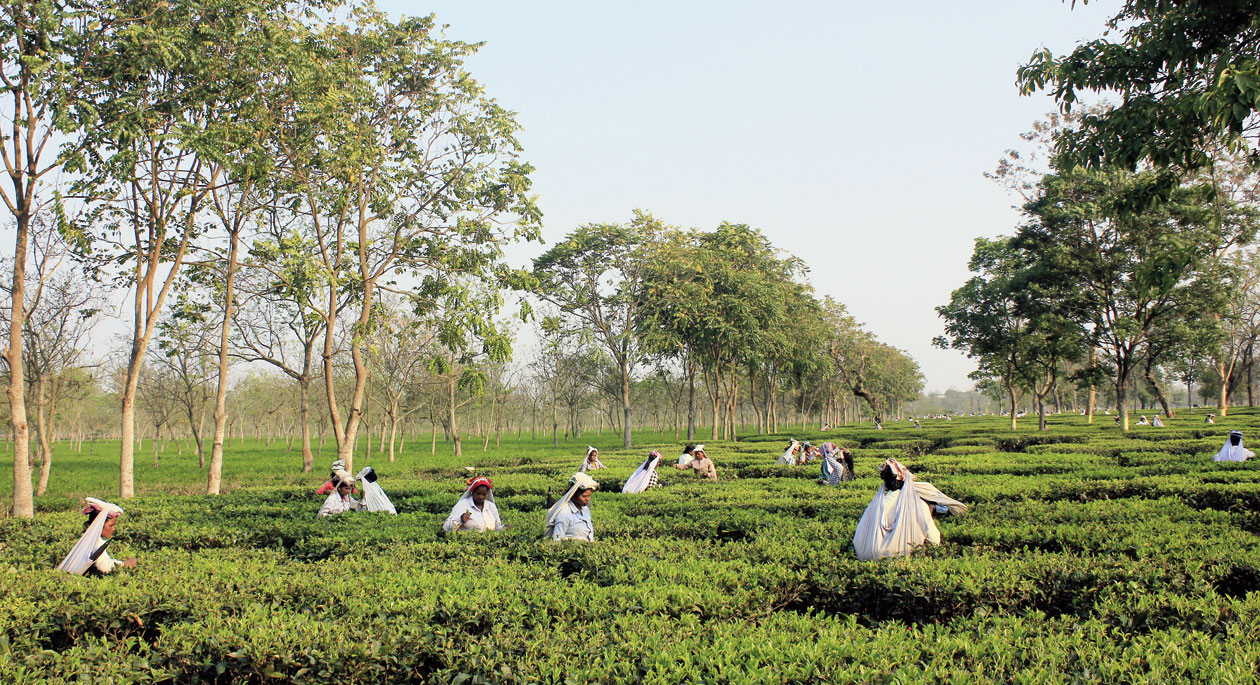The Bengal government on Thursday announced that it would allow the tea industry to resume operations but on the condition that at any given time a maximum of 15 per cent of the workforce can be deployed so that social-distancing norms are adhered to.
“In tea gardens, activities can be resumed but at any point of time, maximum 15 per cent of the workforce can be engaged in the operations. Also, all workers should be given masks and sanitisers, and social-distancing norms should be maintained,” chief minister Mamata Banerjee said in Nabanna.
The announcement came at the beginning of a meeting she held with representatives of different trade bodies.
Last week, the Union home ministry had exempted the tea industry from the lockdown, as tea and coffee have been included in the list of essential commodities. This prompted tea planters and small tea growers to write to the Bengal government seeking permission to let them resume production.
The small tea sector, which has those owning only gardens and not factories, in the state stopped operations on March 22, while tea estates halted their activities on March 24.
However, considering the proximity of some tea estates of north Bengal with the international borders of Nepal, Bhutan and Bangladesh, the Bengal government took time to think over the request.
Two days ago, Mamata had made it clear that the government was not in a hurry to reopen the gardens and asserted that she had received feedback that a section of tea workers was apprehensive of the coronavirus spreading in the estates.
On Thursday, the chief minister announced: “We have spoken with those who are associated with the sector. They have articulated that it is necessary to take care of the plantations, or else production would suffer in the coming months. That is why we have taken the decision. The workers can be engaged on a rotational basis.”
In north Bengal, there are around 300 tea estates, 50,000 small tea growers and 170-odd bought-leaf factories. The total workforce is around five lakh.
Earlier, the state government had only allowed the spraying of pesticides and irrigation work in the tea gardens so that the bushes did not die.
“We are waiting for the order as it is not clear whether the 15 per cent workforce, as has been mentioned by the chief minister, includes the workers engaged in spraying pesticides and irrigation work,” said the manager of a tea estate in Alipurduar district.











